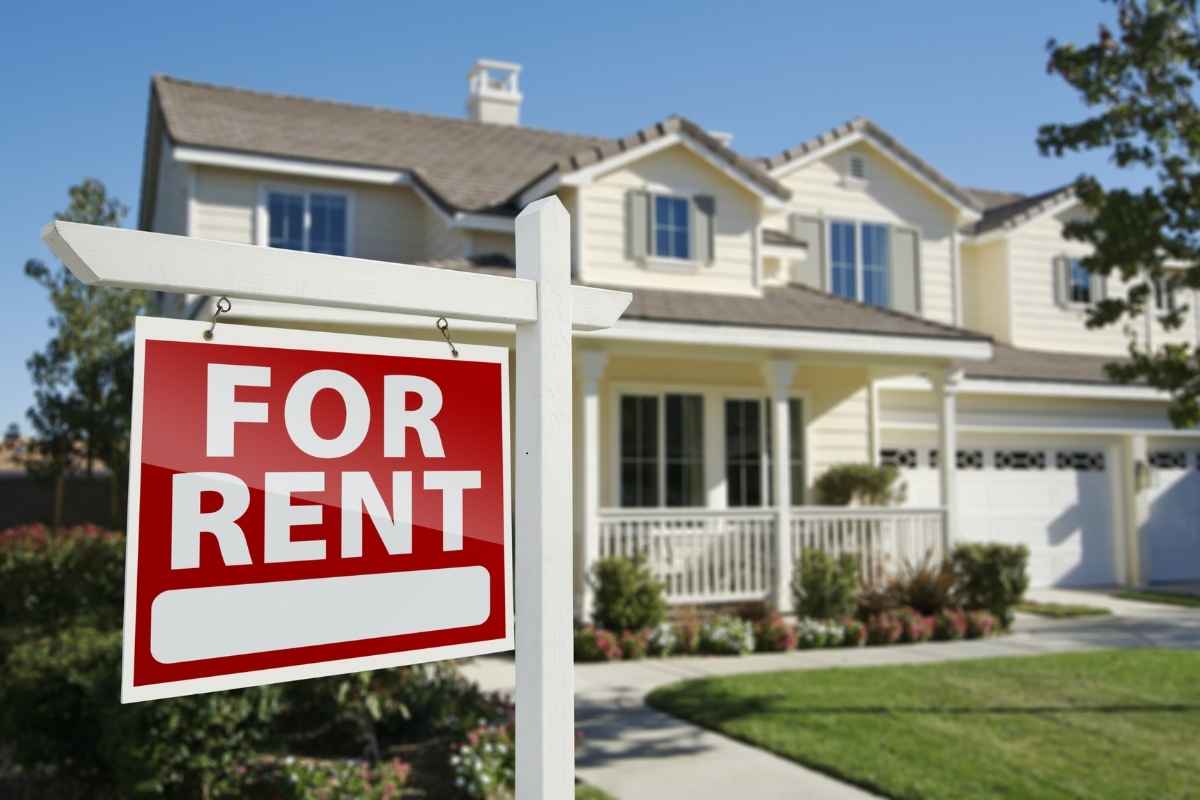15 Best House Hunting Apps You Should Try in 2026
You know, house hunting looks fun from the outside, but when you actually start doing it… it gets messy so fast.
One minute you’re scrolling through photos thinking “yeah, this looks nice,” and the next minute you’re checking school ratings, crime data, commute time, and all that stuff you never even planned to think about.
It just gets overwhelming, you know?
And that’s kinda why I made this list.
There are some apps that actually make the whole thing a lot easier — like, you can check real prices, compare neighborhoods, get alerts the minute a new home hits the market, and even see how far the nearest grocery store is.
So yeah, if you’re trying to buy a house in 2026, these apps honestly save you so much time and stress.
Alright, let’s go through the best ones.
I picked each app for a very specific reason, so you’ll know exactly when to use it.
1. Zillow
Why I Picked It: great for checking prices, browsing homes, and getting quick updates when something new shows up.
You know, Zillow is kind of the place everyone ends up opening at some point during house hunting.
It just has so many listings that you don’t feel like you’re missing anything, and that’s a big relief when you’re already juggling location, budget, and all the small details.
The prices, photos, and past sale history make it simple to get a real feel of a home before you even think about visiting.
I also like how fast the alerts come in — you see new homes early, so you don’t feel late to the party.
And yeah, the whole layout is pretty easy on the eyes.
You just scroll, save homes you like, compare a few things, and slowly start understanding what fits you and what doesn’t.
It just keeps the process lighter.
Also Read: 12 Best Apartment Hunting Apps
2. Redfin
Why I Picked It: great for getting smarter price estimates and super-fast alerts on new homes.
You know, Redfin feels a bit more “sharp” when you’re trying to understand the real value of a house.
The price insights, the recent sale data, and all those small numbers it shows… they actually help you notice things you might skip on other apps.
The alerts also come in really fast, so you don’t feel like you’re discovering homes late.
And the app layout is clean, so you move through photos, maps, and details without getting lost.
It just gives you a clearer picture when you’re comparing homes and trying to figure out which one feels right.
3. Realtor.com
Why I Picked It: perfect for accurate MLS listings and detailed neighborhood filters.
You know, Realtor.com feels really helpful when you want information that’s actually up to date.
The listings come straight from MLS data, so you don’t get that confusing gap where a home looks available, but it was sold days ago.
The neighborhood filters are also really nice — things like nearby schools, commute times, and even small details around the area help you understand the place better.
And the app just loads everything in a simple way, so you can move through homes without feeling lost or tired.
It’s solid when you want clear, reliable info during the whole house search.
Also Read: 15 Best Moving Apps Popular Right Now
4. Trulia
Why I Picked It: amazing for map-based searching and checking things like crime, schools, and local vibes.
Trulia feels really helpful when you’re trying to understand what living in a place actually feels like.
The map view shows you crime patterns, nearby schools, grocery stores, parks, and all those little things that matter once you move in.
And the way it highlights different parts of a neighborhood makes the whole process a lot easier to grasp.
You scroll through photos, then switch to the map, and suddenly everything starts making sense — like how far you’d walk for groceries or how busy the area looks.
It just gives you a clearer picture of daily life in that spot, which is something you really want when you’re picking a home.
5. Homes.com
Why I Picked It: great when you want a huge mix of listings plus an easy way to reach local agents.
Sometimes you open an app and it just throws everything at you in a clean, simple way — Homes.com does exactly that.
The listings feel organized, the filters work smoothly, and the photos load fast, which makes browsing a bit calmer.
One thing that helps a lot is how it connects you to agents in that area, so if you find a home you like, you don’t waste time figuring out who to talk to.
And yeah, the neighborhood details and price history give you enough info to understand if a place is actually worth checking out in person.
It just keeps the whole search flow steady and stress-free.
Also Read: 14 Best Rental Apps You Should Try
6. Rocket Homes
Why I Picked It: helpful when you want solid home listings and an easy way to understand your mortgage options at the same time.
The thing that makes Rocket Homes feel different is how it ties the home search and mortgage side together without making it confusing.
You scroll through homes, check the prices, and right there you can see what the monthly payment might look like.
It makes the whole process feel a bit more real, especially when you’re trying to figure out what actually fits your budget.
The app layout is clean, the alerts come in smoothly, and the neighborhood details give you a decent idea of the area.
It’s pretty handy when you want both the search and the numbers in one place.
7. Zillow Home Loans
Why I Picked It: great for getting quick pre-approval and understanding your loan options without digging through complicated steps.
Zillow Home Loans feels really smooth when you’re trying to see how much you can actually afford before you start touring homes.
The app shows clear loan estimates, simple monthly payment breakdowns, and a pre-approval flow that doesn’t feel heavy or confusing.
It also matches well with your Zillow home search, so everything stays in one place while you compare numbers.
And the best part is how fast the whole process feels — you get a clearer picture of your budget early, which makes the rest of house hunting way easier to manage.
8. Morty
Why I Picked It: perfect when you want to compare mortgage options from different lenders without jumping between multiple apps.
Morty makes the money side of buying a home feel a lot less stressful.
You open it, drop in a few basic details, and it shows you different loan offers in a clean, simple layout.
No complicated forms, no long calls — just clear numbers you can compare at your own pace.
The breakdowns are easy to follow too, so you see what’s actually manageable before you even think about touring homes.
It’s a solid pick when you want transparency and straight-up clarity while planning your budget.
9. BiggerPockets
Why I Picked It: great for digging into neighborhood research, price trends, and long-term home value before you make a move.
BiggerPockets feels really useful when you’re trying to understand the deeper side of a neighborhood, not just the photos and listing price.
You get things like market trends, local rent estimates, past sale history, and even community discussions where people share real experiences about certain areas.
All of this helps you see if a home is actually a good long-term pick.
It’s not just for investors — regular home buyers get a lot out of it too, especially when you’re comparing different neighborhoods and trying to figure out which one truly fits your lifestyle.
10. Houzz
Why I Picked It: helpful for planning renovations, décor ideas, and upgrades before you buy a home.
Houzz feels really handy when you’re looking at a house and trying to picture what you can do with it.
You browse photos, save ideas, and check how other people transformed spaces that look similar to the home you’re considering.
It also gives you access to product links, local pros, and remodeling cost insights, which helps you understand the effort and budget you might need after moving in.
It’s a nice companion app when you’re not just house hunting, but also thinking ahead about how you want the place to look and feel.
Also Read: 17 Best Property Management Apps
11. HomeSnap
Why I Picked It: great for real-time MLS data and that handy “snap a photo to learn about a house” feature.
HomeSnap feels really smooth when you’re out driving around and spot a house that catches your eye.
You just take a quick photo, and the app pulls up all the details — price, past sales, nearby homes, everything.
The MLS data updates fast, so you’re not looking at old or outdated listings.
The map view is clean, the filters work well, and the nearby comps help you see if the price actually makes sense.
It’s a solid app when you want quick info without digging through multiple websites.
12. Compass: Real Estate
Why I Picked It: great for exploring high-quality listings with a smooth, premium search experience.
Compass has this really polished feel that makes browsing homes a bit easier on the eyes.
The photos look sharp, the listing info is laid out cleanly, and everything loads without that clunky, slow feeling some apps have.
It’s especially nice when you’re checking higher-end homes or trying to compare places in popular neighborhoods.
The map view is tidy, the filters are simple, and the saved search alerts keep you in the loop.
It’s just a steady, well-made app when you want a more refined way to look for homes.
13. NeighborhoodScout
Why I Picked It: perfect for getting detailed crime data, school ratings, and deep neighborhood insights before choosing a home.
NeighborhoodScout feels really helpful when you want to slow down and understand what living in that area actually looks like beyond photos and listing prices.
The crime maps are clear, the school details are easy to compare, and the demographic info gives you a better sense of the community vibe.
It also shows long-term trends, which helps a lot when you’re trying to figure out if a place is growing or fading out.
It’s the kind of app you open when you want to be sure the neighborhood matches your lifestyle before you even think about booking a tour.
14. Crimeometer
Why I Picked It: helpful when you want clear, up-to-date crime stats around any home you’re considering.
Crimeometer gives you a quick snapshot of how safe an area feels, and it presents the data in a way that’s easy to understand.
You type in an address, and it shows recent incidents, trends, and how that spot compares to nearby neighborhoods.
The maps are simple, the categories are clear, and you can switch between different timelines to see if things are getting better or worse.
It’s a steady tool to keep on hand when safety is one of your main filters while searching for a home.
15. Waze
Why I Picked It: great for checking real-world commute times and understanding how traffic actually flows around a neighborhood.
Waze comes in handy when you’re trying to figure out the practical side of living in a certain area.
You open it, plug in your usual routes — work, grocery store, gym, whatever — and you get a clear idea of how long things will take during real traffic.
It also shows shortcuts, busy hours, and local driving patterns, which helps you see if a location truly fits your daily routine.
It’s one of those apps that quietly answers questions you don’t always think about in the beginning but matter a lot once you move in.
My Final Thoughts
House hunting looks simple on paper, but once you start scrolling, checking maps, comparing neighborhoods, and trying to understand prices… it all gets a bit heavy.
These apps just make the whole thing feel lighter.
Some help you see real numbers, some help you understand the area, and some just give you the confidence that you’re not missing anything important.
If you’re still figuring out where to start, just pick two or three apps from this list, set your alerts, and slowly build your way into it.
Once you see a few homes, check the crime map, compare commute times, and run the loan numbers, everything starts making sense.
And the best part is — you don’t have to chase ten different websites anymore.
These apps keep everything in one place, so the process feels a lot more doable.
FAQs
What is the best app to find houses for sale near me?
Most people start with Zillow or Realtor.com because they show updated MLS listings and give you a clear picture of homes available in your area. Both apps also send quick alerts so you don’t miss new listings.
Which app is best for checking home prices?
Redfin and Zillow give the clearest price estimates with past sale history, market trends, and similar homes nearby. They help you understand if a price makes sense before visiting.
How do I check if a neighborhood is safe before buying a house?
Apps like Trulia, NeighborhoodScout, and Crimeometer show crime maps, local incidents, and safety trends. They help you compare areas without relying on random information.
What is the best app for first-time home buyers?
Rocket Homes and Morty work really well because they explain loans, show payment estimates, and keep everything simple for people buying a house for the first time.
How do I check school ratings when house hunting?
Trulia and Realtor.com have detailed school info built into their map views, so you can compare ratings and distances while browsing homes.
Which app shows the most accurate home listings?
Realtor.com and HomeSnap are known for the most accurate MLS data. Listings are updated fast, so you don’t run into homes that are already sold.
What app helps with mortgage pre-approval?
Zillow Home Loans and Rocket Mortgage (inside Rocket Homes) give quick pre-approval options and simple monthly payment breakdowns.
How do I compare neighborhoods when buying a house?
NeighborhoodScout, Trulia, and BiggerPockets help you compare schools, crime stats, commute times, and overall neighborhood trends.
What app should I use to check commute time before buying a house?
Waze gives you a real idea of how long your daily routes will take during actual traffic, which helps a lot when choosing the right location.
How do I find homes that fit my budget?
Apps like Zillow, Redfin, and Rocket Homes let you set maximum price, estimated monthly payment, and loan type so you only see homes you can realistically afford.






